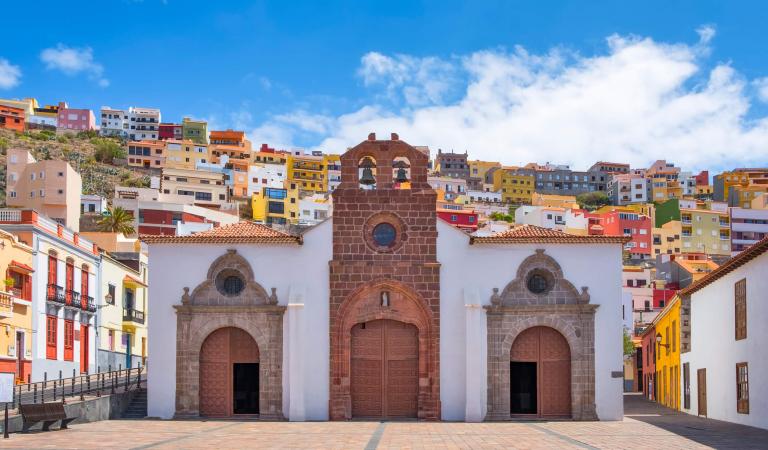Ever wondered about TEFL in Spain? Read on for more information about teaching jobs in this popular European country, and check out our top tips to help you decide if Spain is the destination for you…
Where?
A dream European travel destination for many, Spain has always held an attraction for TEFL teachers around the world. At more than 505,000km2, offering everything from cosmopolitan cities like Madrid and Barcelona, to remote countryside villas, from breathtaking mountains to beautiful beaches, Spain has something for everyone, complemented by a well-developed TEFL industry offering a range of different job types all over the country.
Why?
Be it a treasured memory of childhood holidays, the lingering remnants of high school Spanish lessons or the lure of the siesta, Spain has always been a draw for those seeking teaching work in Europe. As home to a huge number of private language schools, academies and teacher training centres, as well as an ever-growing focus on English language learning is state schools, Spain has many opportunities to offer those embarking on their EFL teaching career.
With some of the biggest jobs fairs and conferences in the industry, teaching in Spain offers a plethora of opportunities to network and develop as an English language teacher.
Typical jobs
Teaching work in Spain tends to run from late September through to early June, with a break for the long summer holiday. This means that most teachers need to be quite flexible about how they’re going to spend their summer, remembering that a lot of the best paid summer work is often to be found in the UK. This is also something to keep in mind when negotiating key things such as accommodation contracts and budgeting for summer flights, so plan ahead and remember that a year of teaching work in Spain is usually, in reality, around nine months.
But what about the work in Spain itself? As is the case with a lot of TEFL work in Europe, you’ll find that a substantial majority of the jobs are with private language schools, where you’ll teach younger learners (YL), teenagers and adults in both groups and one-to-one lessons. These roles are usually a mixture of teaching on-site in your language school, as well off-site at local state schools or perhaps in-company at businesses too.
As with TEFL in general, working with Very Young Learners (VYL, approx. three-to-five years old) is a growing part of language teaching in Spain and most teachers will need to be prepared to do at least some work with younger children. Keep in mind that with lots of teachers attracted to the idea of working in Spain, the competition for jobs can be higher than in some other parts of Europe and it’s not uncommon for employers to ask for a working knowledge of Spanish when looking for teachers.
Top tips from our in-country experts
With a combined experience of over 25 years of teaching English in Spain, our local experts pooled their knowledge and settled on the following top tips for any EFL teachers considering a move to Spain:
- Consider your choice of location carefully. Spain is a big country, and a summer sojourn in Andalusia is a world away from February in Galicia. One of the joys of living in Spain is that the individual provinces offer their own unique cultures and experiences, but not everywhere will suit everyone. Equally, if you’re not usually a city person then think twice before committing to a contract in Madrid or Barcelona that’s likely to see you hopping around the city to different teaching locations.
Different parts of the country have their own histories, personalities and cultures and it’s worth doing your research and creating a ‘wish-list’ before opting for the first job that comes along.
- Adjust your time zone. Things really do run on a different time scale here, and many places really come to life in the evenings – you’ll get used to it after a while! Depending on where you’re based, siesta time is often not the time to pop out and run errands or do a quick bit of shopping as many places will be closed. Equally, while schools and businesses may be closed for that window in the afternoon, you’ll often find yourself teaching then so make sure you get things done in the morning, meaning you’re free to relax and enjoy your evenings.
- Eat as the Spanish do. Shop seasonally and locally in the markets and smaller stores and you’ll be amazed at the incredible range of good-quality, cheap, fresh produce that’s on offer. And while you’re at it, embrace the tapas culture of the local bars and never be afraid to try the local beers and wines. You can eat really well on a limited budget if you abide by the seasonal rhythm of the local specialities and try your hand at a few trusted family recipes from your students.
- Check out what’s happening in your local area. From the famous Las Fallas in Valencia to the quirky La Tomatina tomato-throwing festival in Buñol, Spain is awash with unique local festivals that embody the history and traditions of its different regions. To really embrace your new life in Spain, find out what the big (and small!) events are in your local area and make a point of checking them out.
Not only will it help you get to know more about the place you’ve made your home, but it’s also a great talking point in your classes, giving your students the opportunity to really share their own local knowledge with you.






